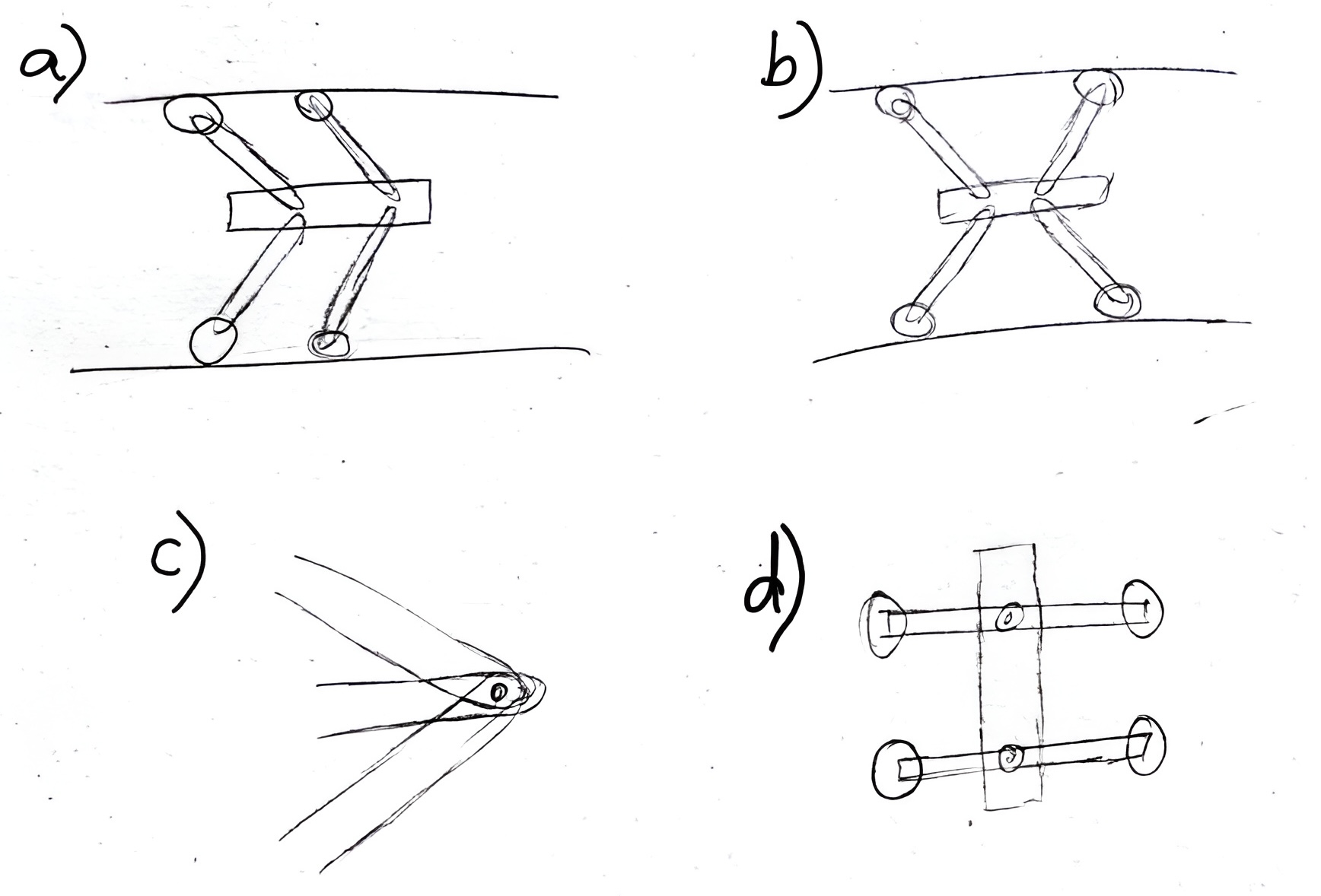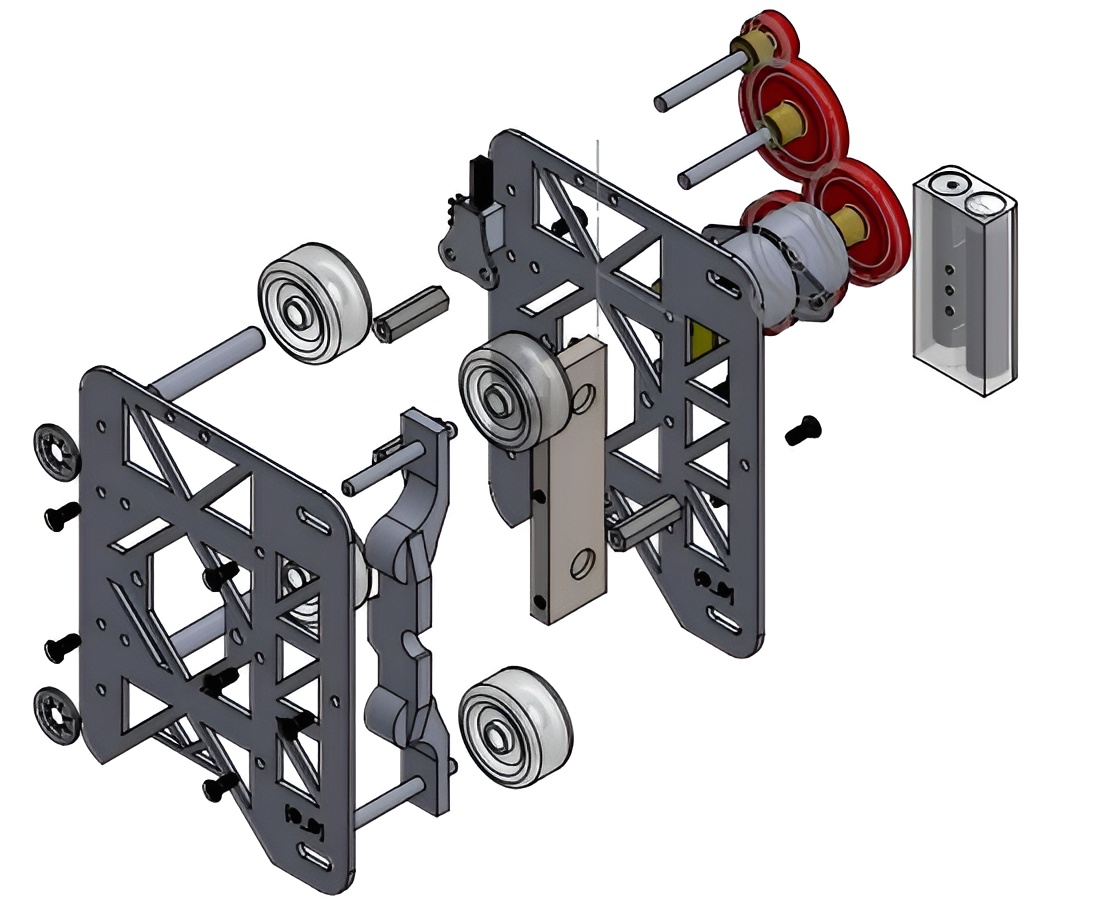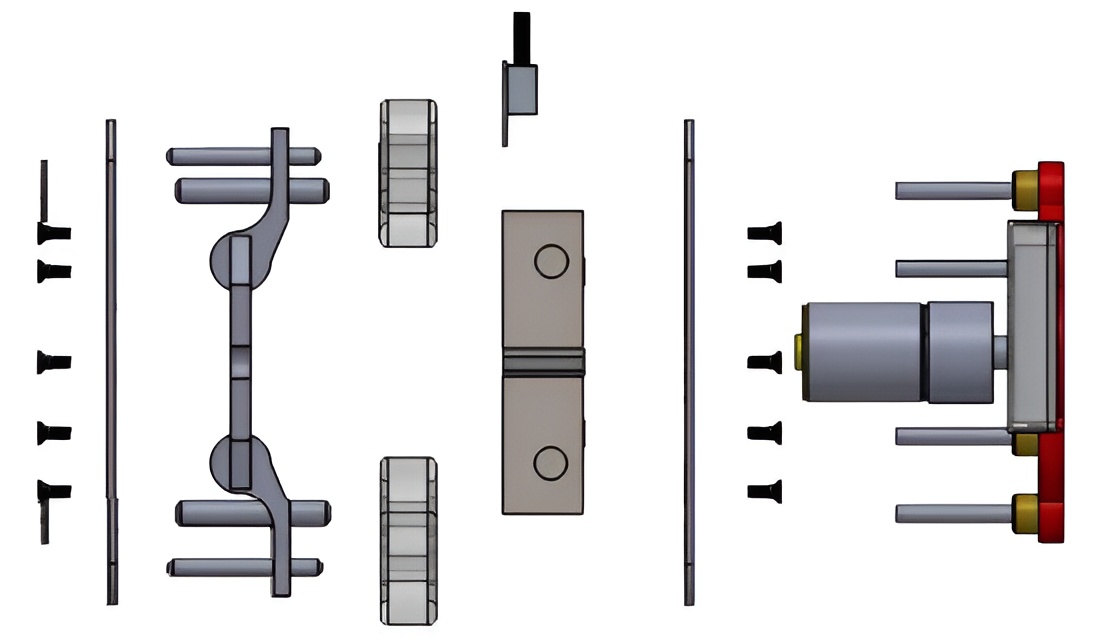Internal Pipe Climber
IMechE Design Challenge 2022 – Internal Pipe Climber
Overview
As part of the IMechE Design Challenge 2022, designed and fabricated an internal pipe climber built to ascend a 2 m vertical pipe, lift an attached 0.265 kg chain load, and return to the start point as quickly as possible.
The challenge simulated real-world pipeline pigging operations used for inspection and cleaning. The design had to meet strict constraints:
- Budget: ≤ £30 for all manufactured and purchased parts
- Size: Must fit within a 105.6 mm diameter, 300 mm length
- Power: Maximum 6 V, 2 W motor
- No control electronics (ie: Arduinos or speed controllers)
Design
Several concepts were explored before arriving at the final rectangular chassis.
- Tripod concept: Lightweight, but aligning wheels and axles was impractical within the given dimensions.
- Quadrant concept: Allowed for efficient free-fall return, but the spring-loaded wheel mechanism introduced instability and safety risks.
- Final rectangular chassis: Provided a robust frame to house the motor, battery pack, and gear system. Triangular cut-outs reduced weight while maintaining rigidity.

Pipe climber initial concept designs
Failure Mode & Effects Analysis (FMEA)
FMEA was carried out twice (before and after testing) to ensure reliability:
- Risk of insufficient spring tension → failure to grip pipe walls
- Risk of low friction tyres → slipping during ascent
- Risk of excess weight → inability to reach pipe top
These risks were addressed through spring rate adjustments, tyre selection, and chassis weight optimisation.


Exploded views of the internal pipe climber, shown from isometric and front perspectives
Results
- Performance: The device successfully ascended the 2 m pipe while carrying the chain load and returned under gravity in 21 seconds.
- Testing observations:
- Early prototypes struggled with grip and friction, causing slips.
- Improvements included selecting tyres with higher tread and reducing overall chassis weight.
- Competition outcome: The climber performed consistently within the competition constraints and passed scrutineering checks.

Assembly drawing of the pipe climber